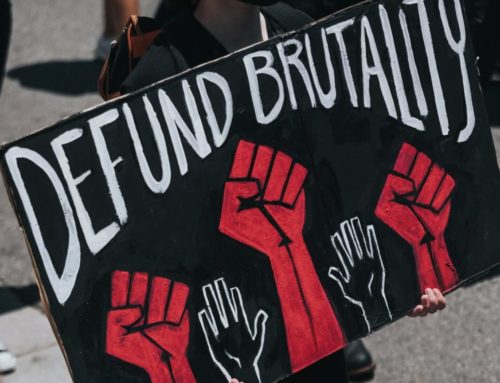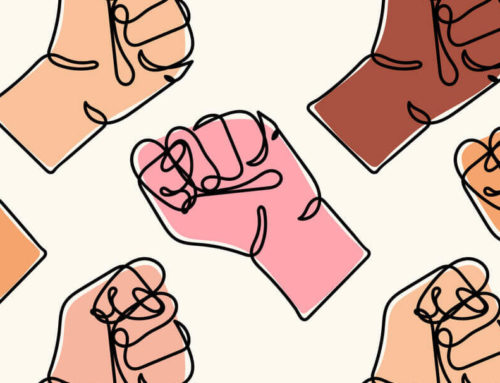November 25, 2014
Read the original post on the blog of the Open Society Foundations
We proceeded on a country road
His mother’s eyes red and swole
Her child was never comin’ home
Said a prayer for his soul
As the coffin had closed, committed to the earth below
First seed she had sown, would be a tree never grown
Shade that was never known
Who controls the Terrordome, the men with hearts made of stone
Who love only what they own
—Mos Def, “Tree Never Grown,” Hip Hop for Respect (2000), in response to the killing of Amadou Diallo
Emotions are still smoldering in Ferguson, Missouri. A community rose up in hurt and anger after the St. Louis County prosecutor announced that a grand jury had declined to indict Darren Wilson, a white police officer, for fatally shooting unarmed black teenager Michael Brown last summer.
Peaceful protesters and those who stoked the embers of outrage struggled to convey their disillusionment with a system that seems indifferent to the deep-rooted tensions between law enforcement and the black community—tensions that all too often result in a young man dead at the point of a policeman’s gun.
Officials rushed to condemn the actions of a small group of protesters who veered off the nonviolent path that most took in hopes of having their voices heard. Their pain is real, and it is being felt across the country, as evidenced by the sympathetic protests that sprang up in Seattle, Los Angeles, Chicago, Washington, D.C., and New York.
All the focus on Officer Wilson’s fate misses a larger point—and an opportunity for public debate about the root causes of the frustration that boiled over in Ferguson yesterday. After all, Michael Brown’s death is part of a tragic pattern borne of structural racism. In the three months since the college-bound 18-year-old was killed, at least eight black and brown people have lost their lives at the hands of police in the United States.
In just the past week, Akai Gurley, 28, an unarmed black man and the father of a two-year-old, was killed by a rookie officer in the stairwell of his Brooklyn apartment complex. A few days ago, a 12-year-old boy in Cleveland was shot in the stomach by police and died the following day. An indictment against Officer Wilson would not have prevented these tragic deaths.
Could anything prevent yet another young black male in America from falling to a police bullet? Can a community, having suffered through this sort of tragedy, ever heal? There are lessons to be learned, and even a small measure of hope, in the story of the death of another young black man—this one in England.
Mark Duggan was a 29-year-old father of six living in Tottenham, North London, when he came under police suspicion during an investigation in the predominantly African and Caribbean neighborhood. In 2011, Duggan was shot and killed. The police claim he was preparing to open fire on them, though no evidence ever surfaced to support that claim. As in the Michael Brown case, Duggan was said by witnesses to have had his hands up in surrender when he was shot. In both cases, peaceful protests and palpable expressions of grief and mourning resulted in a highly militarized police response and days of violence.
Following the London uprising, 14 young people came together to film Riot from Wrong, a documentary that captures the moments immediately following Duggan’s killing and tries to shed light on the various individual and institutional factors that caused community members to act in ways that took a tremendous toll on their own homes, businesses, and neighborhood. The film represents a group of young people challenging the media conventions and law enforcement narrative about Mark Duggan. By holding a mirror up to the community, it helped it begin to rebuild.
The Open Society Foundations are hosting screenings of Riot from Wrong in Ferguson, Washington, D.C., and New York City in early December. The screenings will provide an occasion to look closely at the connection between Ferguson and London—and help show that the race and class disparities and social dysfunction underlying both episodes are not just American problems, but truly global ones.
Young black people in particular are using their voices to lead the charge to racial justice, in solidarity with whites, with the poor and working class, with Latinos and Arab and Asian Americans, and with the world. From Mexico to Hong Kong to France, protesters are using “Hands Up, Don’t Shoot” as their mantra, and quoting American hip-hop artists like KRS-One to decry unfair treatment, neglect, and often outright contempt by police and other governmental forces.
We hope the screening will help start a similar and desperately needed dialogue about what happened in Ferguson and about racial justice nationwide and around the world. It is only when police and the people understand each other that we can lay the foundation needed to make sure nothing like what happened on the streets of St. Louis County ever happens again.
Out of great tragedy can come greater understanding. We can look to the Truth and Reconciliation Commission that arose 20 years ago in South Africa to investigate the effects of apartheid as one example—an example of sustained international reflection that showed how we the people can push and grow toward a more perfect world. Our steps, even our missteps, are building blocks and bring us closer to that world we crave.
Read the original post on the blog of the Open Society Foundations


